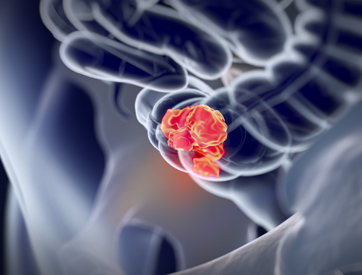The exact cause of colorectal cancer is not known. But there are several risk factors for the disease.
- Other diseases. Colorectal cancer is strongly associated with certain other diseases. Those people considered at high risk include anyone with a personal or family history of colon polyps or colon cancer, inflammatory disease of the colon such as ulcerative colitis or Crohn's disease, and cancers of the pancreas, breast, ovaries, or uterus.
- Heredity. As with any cancer, susceptibility to colorectal cancer is at least partly determined by genetic makeup. A few people inherit medical conditions, such as familial adenomatous polyposis (FAP), Lynch Syndrome, MYH-associated polyposis (MAP), Gardner's syndrome, Turcot's syndrome, Peutz-Jagher's syndrome, juvenile polyposis, and Cowden's disease. In all of these disorders, colon polyps develop at an early age, and unless treated, these people are at high risk of developing colorectal cancer.
- Diet. Diet also contributes to the risk of colorectal cancer, although the cause-and-effect relationship is still unclear. People whose diets are high in fruits and vegetables seem to have a reduced risk. Many studies implicate animal fat and protein as promoters of colorectal cancer, although researchers are cautious about drawing any definite conclusions.
- Chemical exposure. Heavy exposure to certain chemicals, including chlorine -- which in small amounts is commonly used to purify drinking water -- may increase the risk of colorectal cancer. Exposure to asbestos is thought to be potentially harmful because it has been implicated in causing formation of polyps in the colon.
- History of colon cancer. A prior case of colon cancer increases the risk of a second colon cancer, especially if the first cancer was diagnosed before the age of 60.
- Lifestyle. Smoking and alcohol intake of more than 4 drinks per week increases the risk of developing colon cancer.
- Family history. Those with a first-degree relative with colorectal cancer have an increased risk of the disease. The risk increases if more than one first-degree relative has colon cancer.
- Radiation . Prior radiation increases the risk of cancer to the radiated tissue only.



